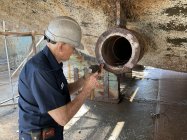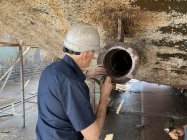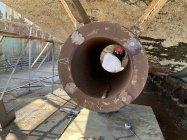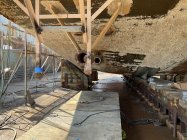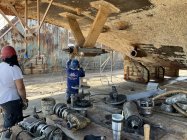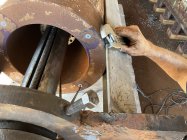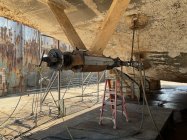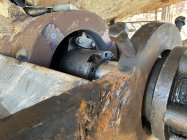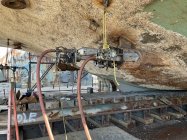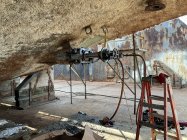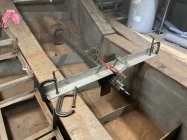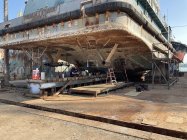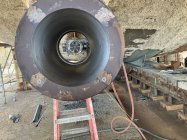Anyone who has looked at one of my amateurish You Tube videos, knows that my home shop is very modestly equipped, yet I have been turning out reasonably decent work for nearly fifty years. I am largely self-taught and learned by reading, watching, and listening. What I have learned over the years is, the more you learn, the more you can learn. In other words, once you begin to accumulate a base of knowledge, you develop the ability to add more. Soon, you are able to think creatively and problem-solve on your own.
One fellow I knew was a Ford mechanic who was also a gun enthusiast. He bought himself a 6" Atlas lathe at a pawn shop, for about 150 bucks, as I recall. Mick was a very accomplished mechanic, with a good understanding of how things worked. He bought a 45 caliber, 1 1/4 inch barrel blank. About a month later, he came in with the barrel which he had contoured to match that of an 1886 Winchester he was resurrecting. He had done this by mounting the tailstock of the little lathe on his bench and turning half of the barrel. He then flipped it around, offset the tailstock in the other direction, and turned the other half. He threaded the barrel and chambered it to 45/70. Maybe 25 years later, Mick had retired from the Ford dealership and started making barrels. He didn't get to make a lot of them before he died, but those he made were equal to anyone's. Mick learned the same way I did. He read, he watched, he asked questions, and he listened. He knew what good work was and took the pains to do it.
A Lathe is a pretty basic machine (or it can be). A person starting out doesn't want to get into the trap of thinking he NEEDS everything at once. What he needs is to establish a base of knowledge, on which he can build. Also, a person never wants to avoid what might be a very rewarding pastime because it's going to cost money and require some effort. WH










